Murder, stabbings and robbery soar - but no one charged in 9 out of 10 crimes
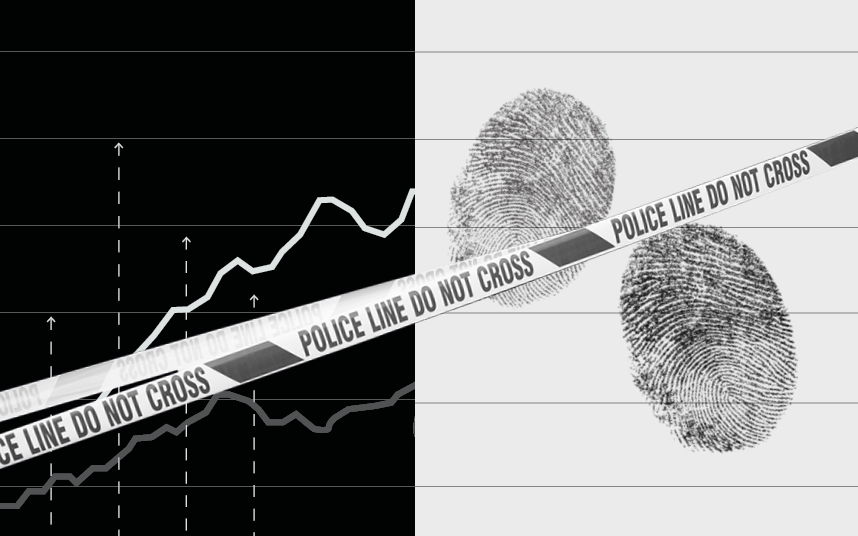
Nine in 10 crimes last year did not result in anyone being charged or appearing in court, it emerged Thursday as new figures showed that knife crime, murder and robbery have soared.
The proportion of crimes that result in charges has fallen from 13.8 per cent in 2016 to just 9.1 per cent in the year up to March 2018. For theft the proportion of people being charged is just 6.6 per cent.
The figures also show that police closed nearly half of all cases because they were unable to identify any suspects.
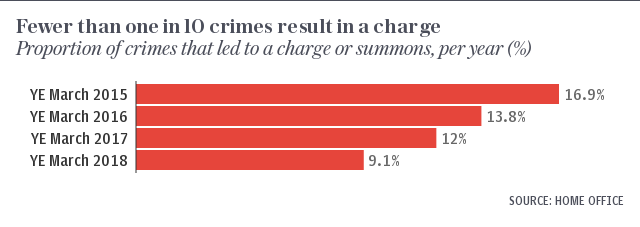
Police figures showed that the number of knife crime offences has risen by 16 per cent to 40,147, while the number of murders has risen by 12 per cent to 701 - the highest for a decade.
Homicides have increased by 38 per cent since a low was recorded by police in 2014. They now stand at their highest level since 2008, with London and other cities bearing the brunt of the violent crime wave.

There was also a huge rise in the number of robberies, which went up by 30 per cent to 77,103.
The Office for National Statistics said that the figures suggest there has been "a real change in these crimes", rather than just improvements in the way the figures are recorded.
Police-recorded robbery offences have been increasing since 2015, when a low of 50,153 was seen. Since then, robberies have soared by 53.7 per cent, to 77,103 offences - the highest level since 2009.
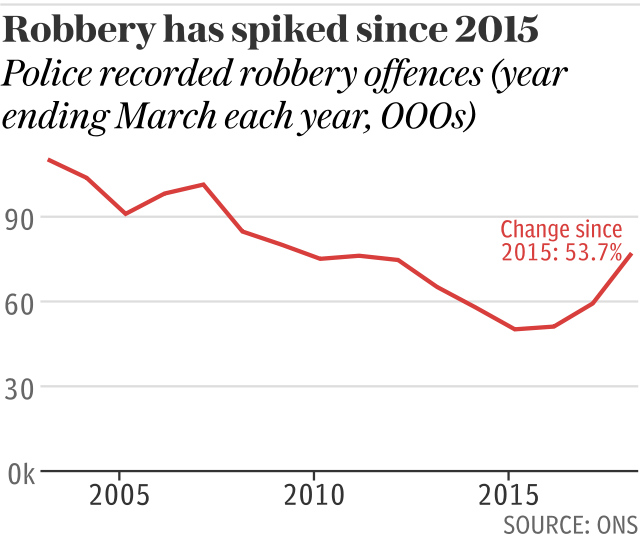
The number of vehicles stolen rose by 17 per cent to 924,000, while the number of sexual offences rose by 24 per cent - although the Office for National Statistics said that this was likely to be due to more victims coming forward. There was also a 36 per cent rise in the number of public order offences to 385,864.
Home Office figures showed that the number of police officers in England and Wales fell by 738 to 122,404 in the year to March 2018, the lowest since comparable records began in 1996. The overall number of crimes recorded by police rose by 11 per cent over the same period.
With 40,147 offences, knife crime is now at its highest level since the data began to be collected in 2011.

There has been a 56.9 per cent increase in knife crime since 2014, when a low of 25,588 offences was recorded by police.
Caroline Youell, head of crime statistics at the Office for National Statistics, said: "There have been increases in some lower-volume “high-harm” offences such as homicide and knife crime, consistent with rises over the past three years. However, the latest rise in gun crime is much smaller than previously seen.
“We have also seen continued increases in some theft offences such as vehicle-related theft and burglary, while computer viruses have fallen.”

It comes amid mounting political debate over how to tackle crime. Boris Johnson, the former Foreign Secretary, argued strongly while in Government that there should be an increase in stop and search to tackle knife crime.
The use of stop and search peaked in 2008 when Mr Johnson was Mayor of London in response to a significant rise in violence.
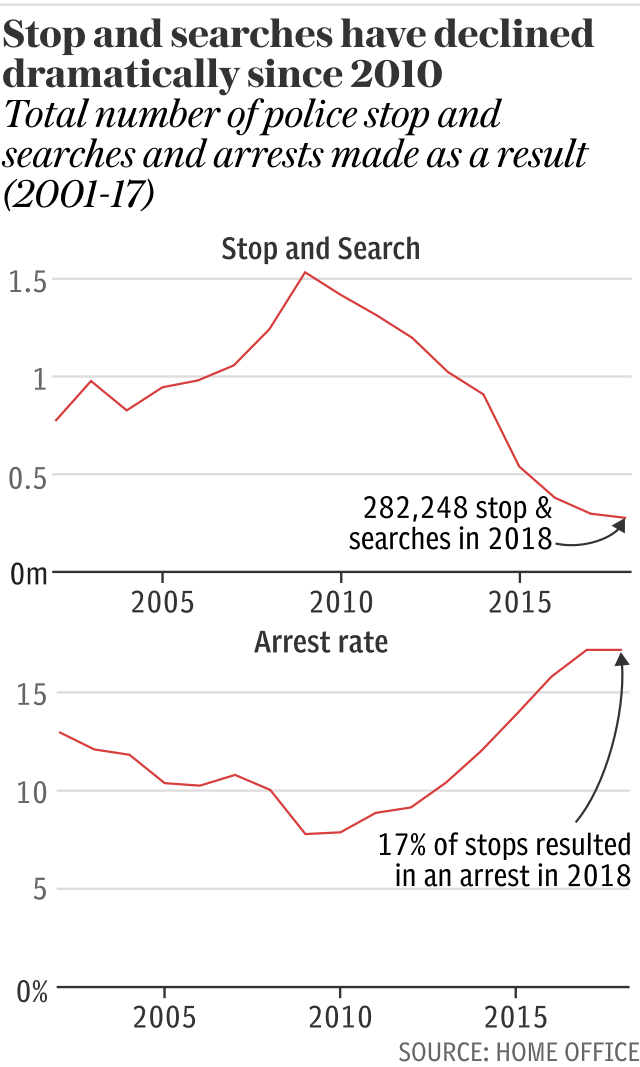
The powers were used 600,000 times in that year, but reforms introduced by Theresa May as Home Secretary led to a dramatic decline in the use of the powers. In 2015/16 they were used only 160,000 times.
Mrs May's changes in 2014 meant police were only allowed to stop people when there were “reasonable grounds for suspicion” amid concerns that the policy was alienating black and ethnic minority communities.
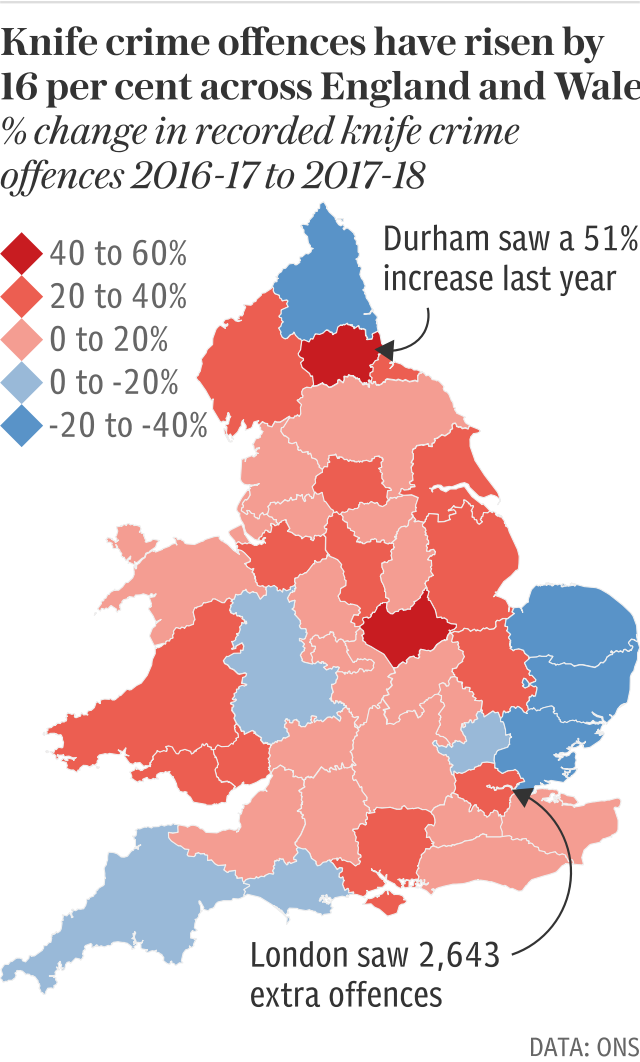
Four in 10 murders in the last year involved a knife or sharp instrument - up from three in 10 last year - showing how surging knife possession is fueling violent crime.
London saw the highest increase in knife crime offences in raw terms, with 2,643 extra offences in the last year - a 22 per cent increase. This surge of knife crime in the capital accounted for almost half of the total increases seen nationally.
Durham saw the biggest proportional increase with offences up by 51 per cent. Humberside, Cambridgeshire, Hampshire, Dyfed Powys, Cheshire and Leicestershire all saw rises of a third or higher, while just seven police forces recorded a drop in knife crime in the year to March.


 Yahoo News
Yahoo News 
